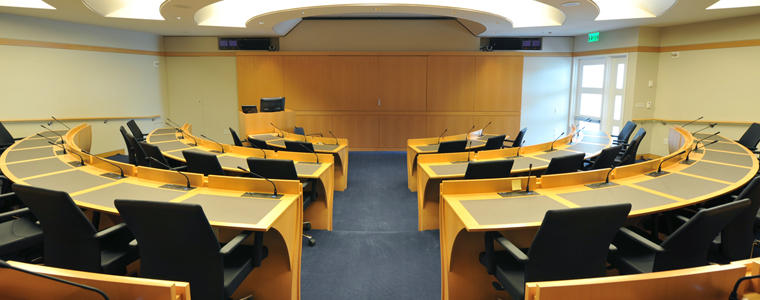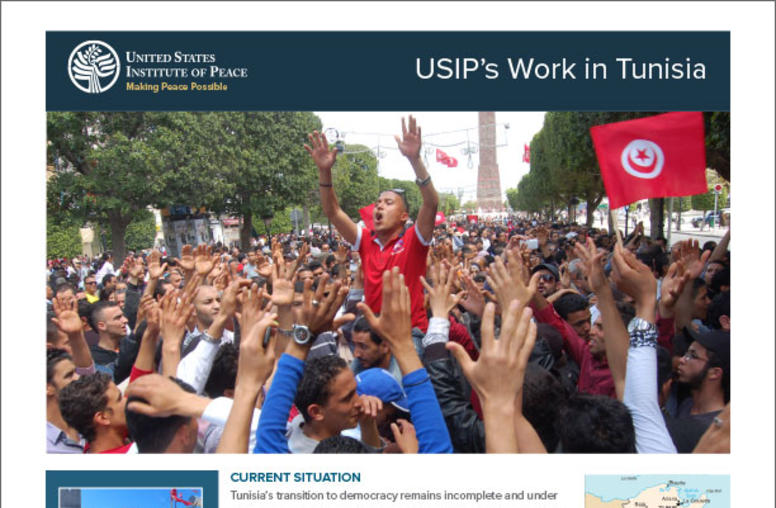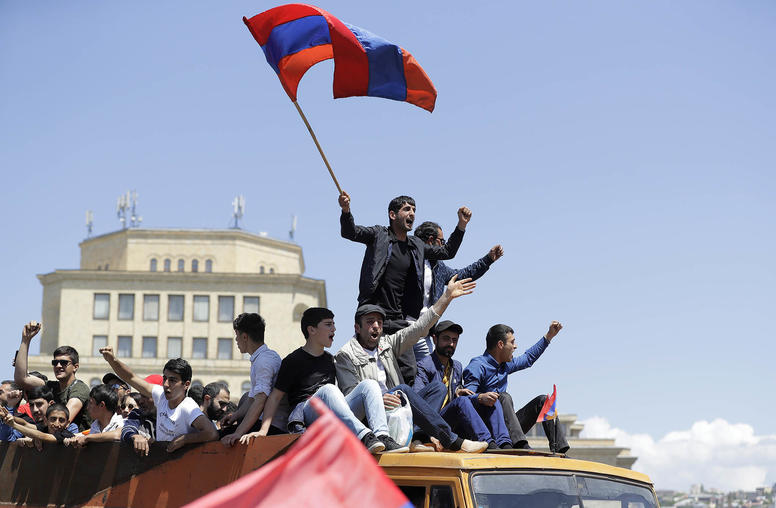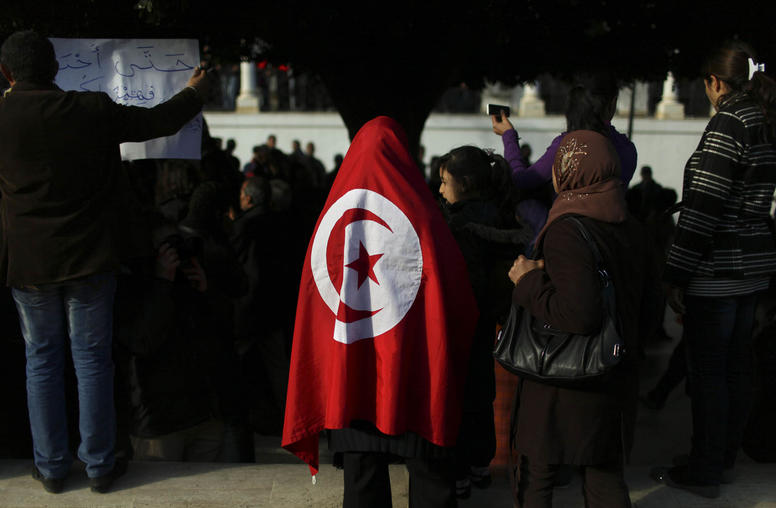The Struggle for Democracy in Tunisia
Tunisia's 2010-11 “Jasmine Revolution” ignited a flame of political rebellion that quickly spread to Egypt, Yemen, Libya, Bahrain, and Syria. But as the "Arab Spring" enters its third season, Tunisia’s struggle for democracy is beset by escalating ideological and even violent conflicts. What are the key challenges facing Tunisia? How can U.S. officials and nongovernmental organizations help Tunisians address mounting domestic and regional crises?
Read the event coverage, Tunisian Academic Leaders Cite Worrying Delays in Economic, Political Progress

To discuss these and other questions, the United States Institute of Peace, Georgetown University, Johns Hopkins SAIS, and Project on Middle East Democracy (POMED) convened round-table featuring a delegation of prominent Tunisian political scientists on Wednesday, March 20, 2013 from 2:30pm to 5:00pm at SAIS. Members of the delegation offered their perspectives on the situation and then participate in a frank question-and-answer session.
2:30pm | Introduction and Welcoming Remarks
- Daniel Brumberg,
Senior Adviser, U.S. Institute of Peace;
Co-Director, Center for Democracy and Civil Society, Georgetown University - I. William Zartman,
Professor Emeritus (John Hopkins University's School for Advanced International Studies)
2:40pm | Key Political and Economic Challenges: The Broad Horizon
- Lotfi Mechichi,
Dean, Faculty of Law and Political Science, University of Tunis - Stephen McInerney,
Executive Director, Project on Middle East Democracy (POMED)
- Salwa Trabelsi,
Professor, School for Higher Education in Economic and Commercial Sciences (ESSEC)
- Mohamed Chafik Sarsar,
Professor, Faculty of Law and Politics, University of Manar;
Member, Committee of Experts of the High Commission for the Realization of the Objectives of the Revolution, Political Reform and Democratic Transition
3:20pm | Question and Answer Session
3:40pm | Gender, Religion, Media, and the Struggle over the Constitution
- Barak Hoffman,
Co-Director, Center for Democracy and Civil Society, Georgetown University - Manal Omar,
Director of Iraq, Iran, and North Africa Programs, U.S. Institute of Peace - Faycal Allani,
Department Chair, University of Tunis and Chief of Cabinet, Allani Avocats - Abdellatif Hermassi,
Professor, University of Tunis - Fethia Saidi,
Sociologist and Professor, Faculty of Human Sciences, University of Manar
4:30pm | Question and Answer Session
5:00pm | Concluding Remarks



